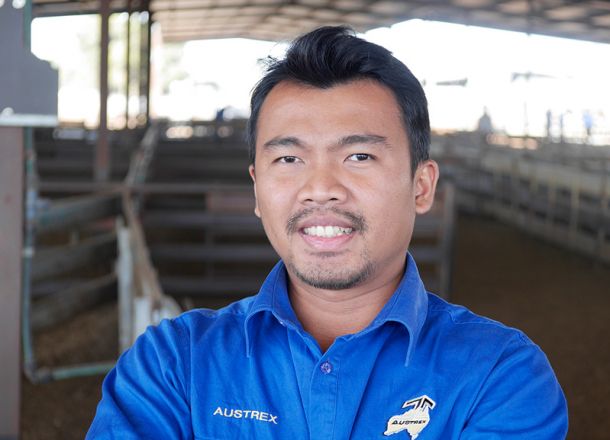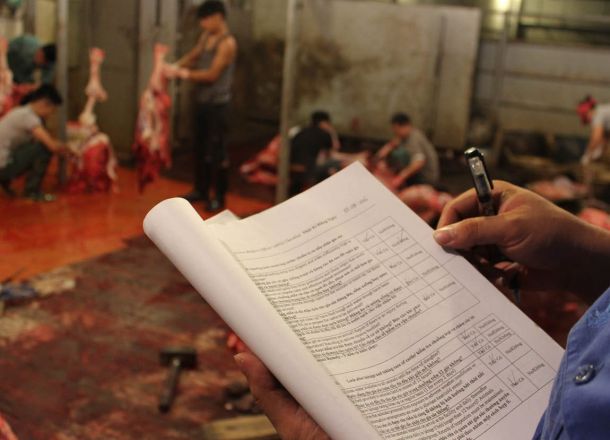
Partnerships drive economic growth and welfare awareness
Made Gusti works in the Indonesian beef supply chain overseeing the welfare of Australian cattle. He is based at South Tangerang, near Jakarta, and makes visits to feedlots and abattoirs on a daily basis to ensure facilities are ESCAS compliant.
~95%
of Australian cattle in Indonesia are now stunned pre-slaughter, up from less than 10% in 2011
In-market support for ESCAS
Made Gusti works for Australian exporter AUSTREX in the Indonesian cattle supply chain.
He is in his early 30s, is married with a young daughter and previously worked as a cook before gaining employment in the cattle industry in 2013.
As a member of AUSTREX’s Indonesian supply chain team, he continues to gain experience and knowledge about managing welfare, control and traceability from the point of discharge at the port, through to the feedlot and onto the abattoir.
“I know more about animal health and welfare now and I continue to learn more about the livestock industry every day,” Made said.
“It is a very interesting and rewarding industry to work in. I love it so much.”
Made says there are many clear benefits that the live cattle trade brings to Indonesia.
“In my opinion there are many advantages in having imported Australian cattle in Australia,” he said.
“Employees working in feedlots or abattoirs are just getting a job and a salary, they get to learn about handling livestock from start until finish.
“Across Indonesia, the live cattle trade is improving our understanding of the welfare of livestock, not just of Australian cattle, but all livestock.”
Made recently completed LiveCorp’s Stockperson Accreditation Course in which he learnt more about the livestock export supply chain – especially regarding the management of livestock during the export process, the regulatory framework governing the trade and the roles and responsibilities of others in the industry including shipboard stockpersons and veterinarians.
 Made Gusti works in the Indonesian live cattle supply chain.
Made Gusti works in the Indonesian live cattle supply chain. 